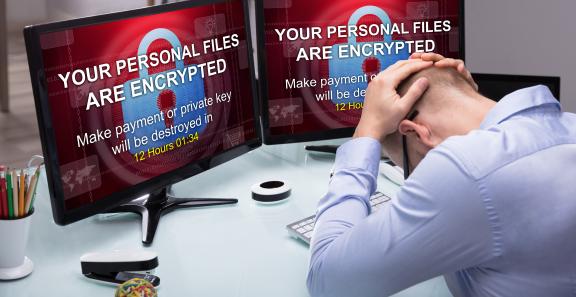Protecting Yourself From Ransomware

Posted: July 15 2019
Ransomware is a type of malware that locks the you out of your computer or mobile device—demanding payment (often virtual currency like Bitcoin) to restore access (no guarantee you’ll regain access if you pay). While medical facilities, universities and government agencies are prime targets for these attacks, anyone can be a victim.
Stay Updated
No matter which operating system you use, it’s important to update it and your apps regularly. As hackers are always finding new ways to get through your software’s defenses, software companies often release security updates to combat them. It’s best to set your operating system and apps to update automatically.
Get Protected
Make sure you have good anti-virus protection installed on your computer/mobile devices.
Be Careful
Don’t open email attachments from someone you don’t know. Even if you think you know (or actually know) the person who sent the email, it’s good to be careful before opening any attachments you weren’t expecting (people can make it look like the message came from someone that you know or the person's account could've been compromised) so save the attachments to your computer and scan them with your anti-virus before opening them.
It’s also important to never open links that are in an email unless you’re certain they are safe.
Back It Up
Be sure to back up all your important data. While your computer/mobile device could be expensive, it’s replaceable—your data might not be. There are many hardware (flash drives, external hard drives), software (archiving or disk imaging programs) and cloud backup solutions to safeguard your data.